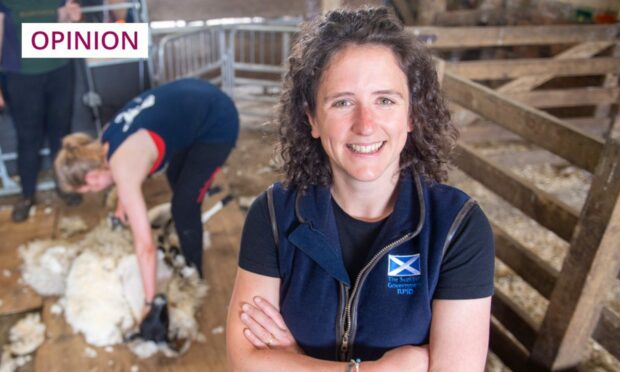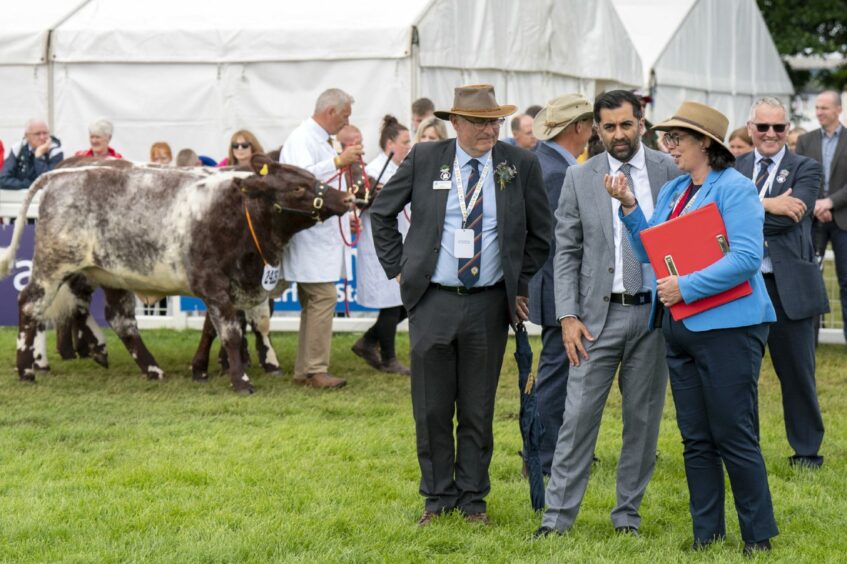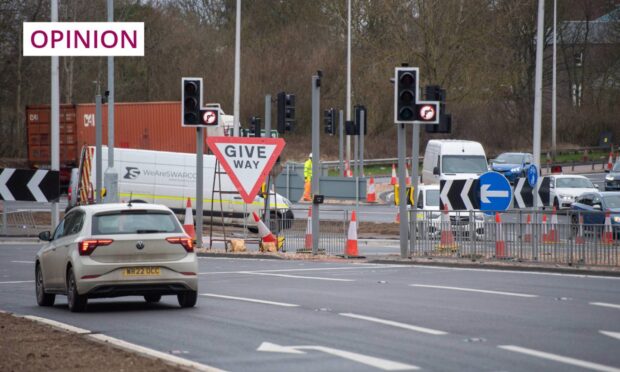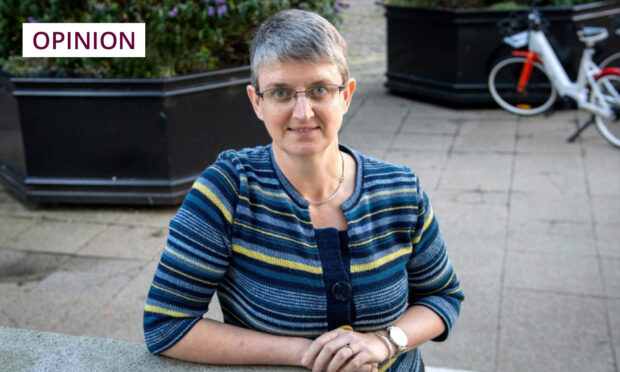Well, last week saw the old sports jacket and trousers being raked out of the wardrobe for the annual visit to the Royal Highland.
For some unknown reason the waistband of my posh breeks appeared to have shrunk over the intervening period. And, while that wasn’t a problem initially, as the day wore on it began to get increasingly uncomfortable.
So I suppose I might at least have had something in common with the Scottish Government’s representatives at the show.
Don’t get me wrong. I certainly wouldn’t want to insinuate that any of them were anything other than their usual svelte selves. Nor would I want to criticise their dress sense.
It’s more the suspicion that had adopted a similar approach to the occasion – by pulling the same old thing out of the cupboard, dusting it down and bringing it along to the show again in the hope that no one would notice it had been gathering dust for the past year.
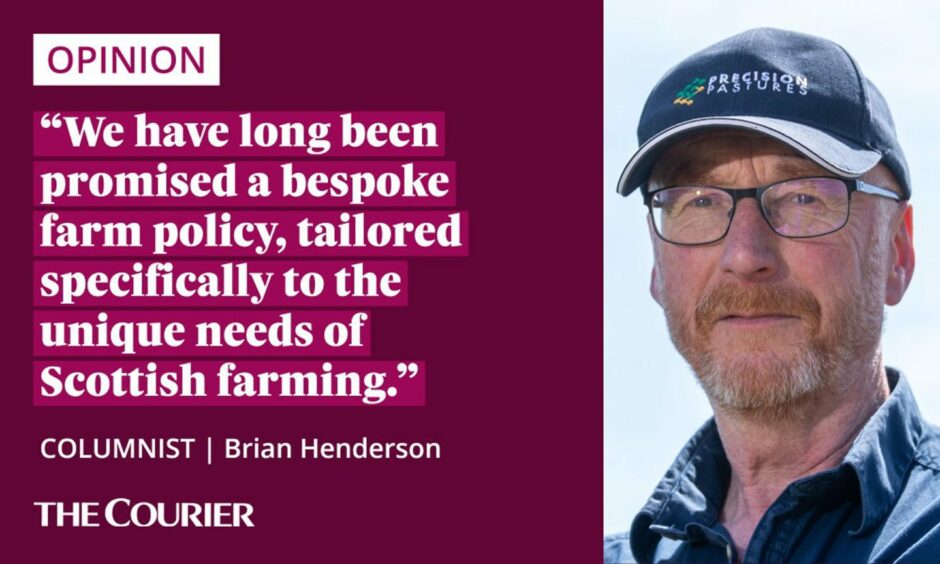
Whereas it was my sartorial elegance which was at fault, it was the Scottish Government’s apparent lack of any advancement on the development of farm policy which should have left them feeling increasingly uncomfortable.
Scottish Government appearances were light on farm policy detail
Now it can only be an expression of hope over experience, but every time we get a visit from the Rural Affairs Cabinet Secretary at a major Scottish farming event there’s always great anticipation that we’ll finally get some flesh on the bones of a policy which has remained skeletally thin.
Sadly, while Mairi Gougeon did give several addresses at the Royal Highland Show, these were heavy on encouragement and promised a continued focus on food production.
Dress it up as you will, but there was little in the way of the sort of detail required for making long-ranging business decisions.
Rural Affairs Secretary @MairiGougeon was at the @ScotlandRHShow last week.
She discussed the importance of the Scottish Government's food and drink strategy and agriculture reform work.
🔽 Watch her reaffirm a commitment to supporting Scotland's sustainable food production. pic.twitter.com/RTpOot7eRw
— Scottish Government (@scotgov) June 27, 2023
We did hear that the production of a whole farm plan will be a condition of accessing support in the future. This will have to include not only a carbon audit but also a biodiversity plan, as well as soil testing, an animal health and welfare declaration and supported business planning.
Now this all sounded a bit like a consultant’s charter, requiring some heavy spending to get people to come in and tell us what we already know (or don’t really need to know in the first place).
And while we’ve been promised leaflets, guidance, videos and case studies, along with a series of roadshows around the country to explain things to us, there’s still no sign of the detail we need.
Still waiting for that bespoke policy
How are the things listed above going to help a cereal farmer decide whether he should invest in building a new grain store?
Or help the beef farmer decide if he should put the bull in with the cows – or simply sell the lot down the road while the price is reasonable, as many have already done in recent months?
On that last point, there has been a constant rebuttal of any rumours that the administration is planning a major reduction in cattle numbers
But there is a growing suspicion that it appears to be quite happy to see the same result being achieved without them having to lift a finger, since the current uncertainty is doing nothing to encourage the sort of long-term commitment required to support the country’s breeding stock.
Unlike my off-the-peg Highland show wear, we have long been promised a bespoke farm policy, tailored specifically to the unique needs of Scottish farming.
But we are growing tired of waiting.
We’ve got the cloth – what farmers really need right now is the pattern to let us get on with making the suit fit.
Brian Henderson farms a mix of arable and livestock enterprises with his family on their farm in Perthshire. He is a longtime agricultural commentator and a weekly columnist for The Courier.
